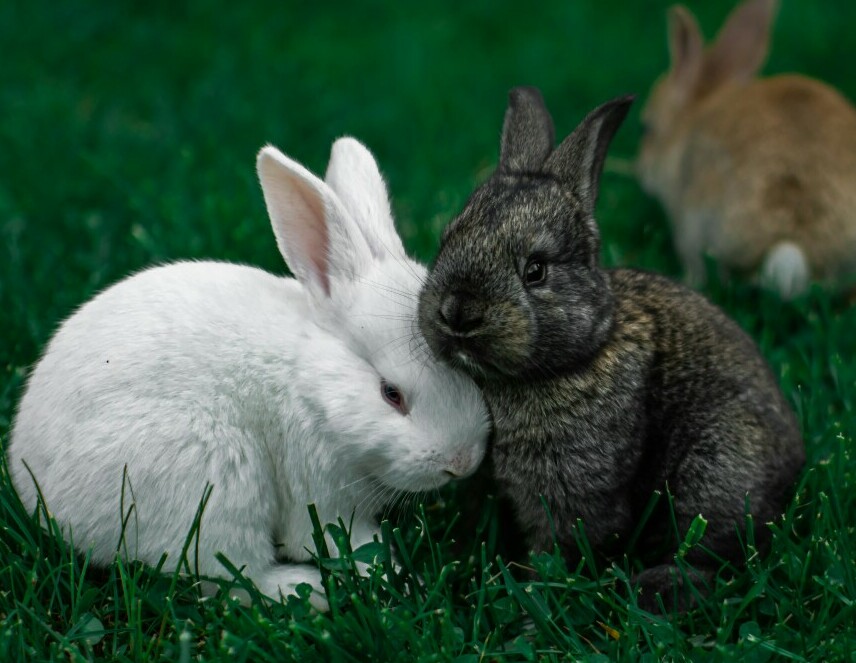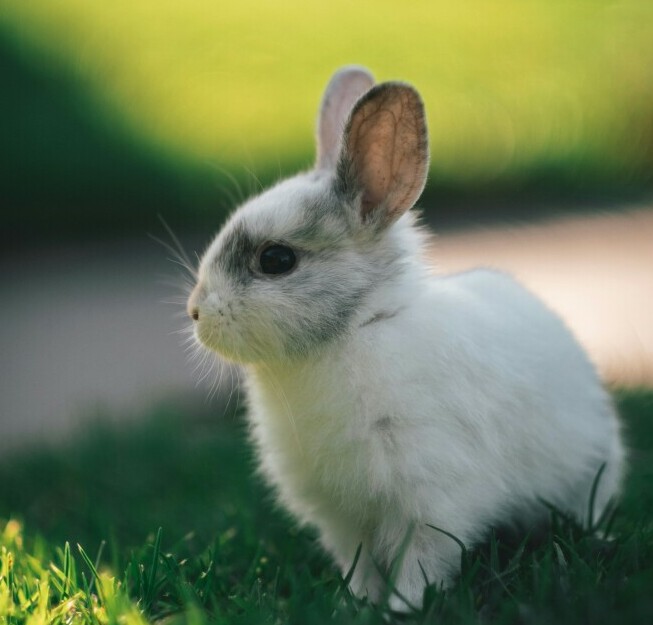You may be considering getting a rabbit and wondering where to start. Rabbits are not the easiest pets, they need a lot of attention and can get into a lot of trouble if they aren’t receiving the correct care. They are very different from dogs and cats in how they think and act which can be challenging for a new owner. That’s not to say that rabbits are bad pets, they are amazing companions if given the tools and affection to thrive!
#1: Rabbits Need Stimulation – Both Mental and Physical
Rabbits are very intelligent animals and without proper stimulation, they will resort to destructive behavior to express their instincts. Imagine if you had no entertainment or anything to do and you were left alone all day. You would probably try to figure out something to do with what you are surrounded with, you aren’t just going to sit and do nothing all day. The same goes for rabbits, except usually, the only thing they can do is chew on or dig the items in their surroundings. This can be not only a problem for the rabbit but also for you as the owner. It’s very frustrating when your items get destroyed and you have to fix or replace them.
The best way to combat this issue is to provide your rabbit with things to do, and ways to exercise both their mind and body. You can help them exercise their mind by providing little challenges for them to figure out such as puzzle boxes, stacking cups, or snuffle mats. By placing treats inside these, your rabbit will be motivated to find a way to get them out and it provides mental stimulation because it is a challenge.
You can help your rabbit exercise their body by providing them room to run and hop, specific places to dig such as a digging box, and chew toys. For more homemade toy ideas check out my article Easy Rabbit Toys! These are all ways that your rabbit can express physical instincts in a healthy way that benefits both you and your rabbit. When you provide outlets for your rabbits’ instincts they will be less likely to ruin your items and furniture which makes both parties happy!
#2: Rabbit Teeth and Nails Never Stop Growing – Like Ever!
Another interesting fact about rabbits is that their teeth and nails have open roots which means they won’t stop growing. Their teeth grow around a cm per month, you can’t trim teeth at home but you can trim their nails. It is recommended to trim their nails every 1-2 months depending on if they are kept in a space where they can scratch them regularly.
In the wild rabbits have to find ways to keep them trimmed down through activities like chewing and digging. As I said, these are instincts that rabbits will express whether you like it or not. It makes life for you and your rabbit a lot easier when you provide ways for your rabbit to chew and dig to save your items and furniture. Chew toys and digging boxes are what I have found to be the most effective. Ultimately though it is best to observe your rabbit and pay attention to the materials they like to chew best and try to find healthy alternatives. For example, if you see your rabbit chewing your baseboards, give them wooden chew toys instead and block off access to the baseboards. My rabbit Leo loves to chew cardboard so I give him old boxes and paper towel rolls as a homemade option for a chew toy.
#3: Rabbits Need Room to Run
One very common misconception is that rabbits are meant to be kept in cages. When you watch a wild rabbit you will see they run very fast and pretty much all over the place. Rabbits may be small, but boy are they fast. They need lots of space to run and hop around as they would naturally. There are different ways to go about this. You can let your rabbit free-roam which means allowing full access to a room or multiple rooms, similar to a dog or cat. This is what I recommend because it allows your rabbit to move around freely and at their own pace. The only downside is you have to make sure the space is completely rabbit-proofed before allowing them to be unsupervised. Rabbits can be trouble makers so it is important to make sure there is nothing that would harm them or your materials.
Another option is to keep your rabbit in a smaller enclosure or sectioned-off area. However, it is still important to allow them around 1-2 hours per day to exercise and have supervised access to a full room. This is a great option if you do not feel comfortable allowing your rabbit to be unsupervised in the room but still don’t want your rabbit stuck in a cage. Depending on your lifestyle these are both great options but either way, you will need to rabbit-proof any rooms your rabbit may have access to, regardless if they will be supervised or not.
#4: Rabbits Don’t Like to Be Held

Rabbits are prey animals which means their main instincts are to run and hide. In the wild, the only time a rabbit would get picked up is by a predator such as an eagle or a fox hunting them. This instinct makes it difficult for rabbits to feel comfortable being held, it takes a lot of trust and time for your rabbit to feel safe being held. You can build trust by spending quality time with your rabbit and creating a positive association with being touched. However, this requires a lot of patience and consistency. For more ways to bond with your rabbit, check out my article “3 Ways To Spend Quality Time With Your Rabbit”.
Once you have built a bond with your rabbit and they trust you, you can work towards picking them up through positive association with being touched and eventually held.
#5: Rabbits Need a Lot of Attention and Love

Even though rabbits may act like they don’t want attention, they truly do need it to thrive. Rabbits are a social species, meaning they prefer to live in groups and do not do well alone. However, if you do not have the resources to properly care for multiple rabbits, you will have to become their companion. This is easier said than done, rabbits need at least an hour of quality time per day which is not easy to fit into a busy schedule. The reason this is so important is because rabbits are very intelligent animals and if they are not getting enough attention and stimulation they will act out in destructive behaviors to get your attention. Giving your rabbit enough love makes for a much happier life for both you and your rabbit!
Conclusion
Whether or not you are a soon-to-be rabbit owner or if you have had a rabbit for many years I still urge you to continue to do research. Rabbits are unique pets and you can never know too much about them. In my opinion, it is most important to prioritize giving your rabbit affection and stimulation. This will help prevent destructive behaviors and make life a lot happier for both you and your rabbit! If you are looking to learn more about rabbit lifestyle and care my website is a great place to start 🙂
If you have any questions or comments please feel free to leave them below and I would love to get back to you!

